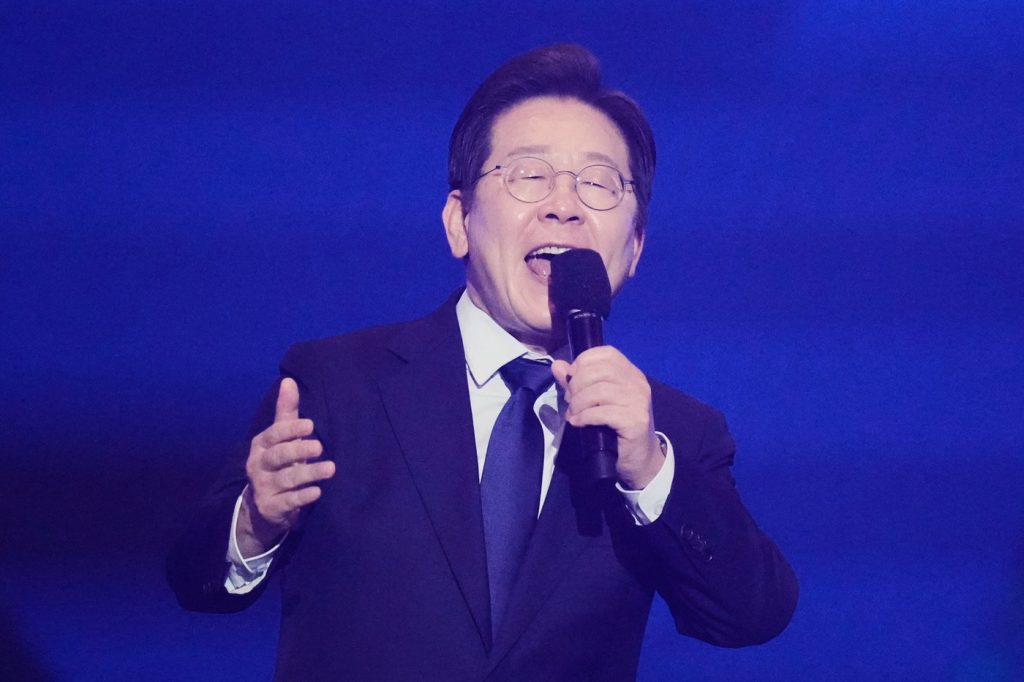SEOUL, South Korea (AP) – Lee Jae-myung, a prominent figure in the South Korean opposition, has emerged as the main candidate for the presidency from the Democratic Party, solidifying his position as the frontrunner to succeed the recently ousted conservative President Yoon Suk Yeol. This development follows a tumultuous period marked by Yoon's controversial martial law decree in December, leading to his impeachment by the opposition-controlled parliament. The Constitutional Court formally dismissed Yoon earlier this month, setting the stage for a snap presidential election on June 3, which will grant the winner a full five-year term.
Lee, 60, who previously served as the Democratic Party chief, secured approximately 90% of the votes in his party's primary, decisively defeating two other contenders. His dominance in the polls is reflected in a recent Gallup Korea survey, where 38% of respondents expressed support for him as their preferred presidential candidate. In contrast, candidates from the opposition People Power Party, which is set to announce its candidate next weekend, garnered a combined 23% in the same survey.
This marks Lee's third attempt to run for president. He narrowly lost the 2022 election to President Yoon, with the closest margin in South Korea's electoral history, and previously finished third in the Democratic Party's primary in 2017. Lee has built a reputation as a reformist, having served as the governor of Gyeonggi province, the nation’s most populous area, and as the mayor of Seongnam city.
His political persona is characterized by a strong anti-establishment stance, focusing on eradicating deep-rooted issues like economic inequality and corruption. However, critics label him a populist, accusing him of fostering division among the populace while denigrating his political opponents. As he embarks on this campaign, he faces significant challenges, including five ongoing trials concerning corruption and other criminal allegations. Should he ascend to the presidency, he would likely receive special immunity from most criminal charges, effectively pausing these legal proceedings.
Lee's rise in the political arena coincides with a struggle among conservatives to regain public trust following the fallout from Yoon's martial law declaration, which incited considerable unrest across the country. The People Power Party is currently experiencing internal strife as senior members advocate for Yoon's actions while reformist factions that supported his impeachment push for a different direction. Political analysts, such as Choi Jin from the Institute of Presidential Leadership, believe that the upcoming election serves as a referendum on Yoon's martial law decision, making it challenging for the People Power Party to emerge victorious unless they confront the issue and issue an apology.
Lee gained media attention when he dramatically livestreamed his efforts to scale the National Assembly walls during Yoon's martial law decree, as troops surrounded the building. His actions, along with those of other lawmakers, led to the quick dissolution of the martial law, which was lifted within six hours of its imposition.
The upcoming election is poised to be a pivotal moment for South Korean politics, with Lee Jae-myung positioned as the leading contender in a landscape marked by significant political tensions and public discontent. As the country approaches the election date, the focus will remain on Lee’s vision for economic reform and his approach to cross-border relations with North Korea, alongside the internal challenges facing the conservative establishment.











